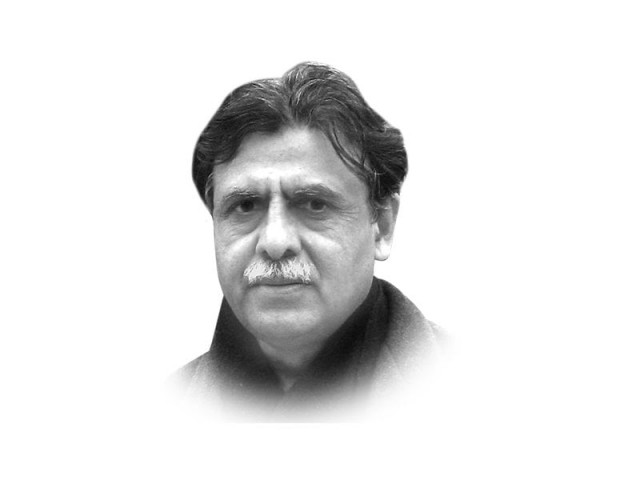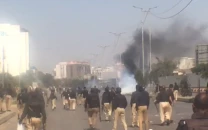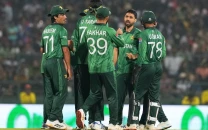How do we fix Karachi?
Karachi, like any mega city, needs a different and distinct governance model

The writer is an author, a public policy analyst and a former interior secretary. He teaches at LUMS
At the same time, however, Karachi still continues to seethe with discontent as basic needs of the people remain unfulfilled. With the onset of summer, the sizzling heatwave has reportedly claimed several lives. Not all these deaths can be blamed on acts of nature alone. Human failings are as much responsible for the woes at hand, with a large part of the metropolis hit by the worst possible case of load-shedding. Added to this is the fact that a city of 20 million is without adequate water supply for its growing population. Worn-out, dilapidated conduits are carrying water to filter plants, which are mostly in a state of malfunction. Leaky pipelines are supplying arsenic and contaminated potable water. Waste and filth piles up on roadsides. Then there is the lack of an organised intra-city transport or mass transit system. These are just the basics that have been crying out to be fixed for a long time.
With the general elections just around the corner, Karachi is now figuring prominently on the agenda of our political parties. The ruling PML-N is keen to dole out a package for the financial hub should it come to power. The PPP considers Karachi its bastion and is again promising to turn around its fortunes. Various factions of the MQM are trying to unite in a bid to bring back the lights and glory of Karachi, while the PTI has made sure that the city features prominently in its 100-day agenda. Karachi, however, cannot remain on the playground of tall claims any longer. What it needs are the basics. The city possesses resilience and an enterprising citizenry to steer its way forward should the state ensure the provision of the fundamental baselines.
To start with, what Karachi needs is the provision of water, electricity and clean neighbourhoods. On all three counts there has been a huge deficit on the part of the state and its institutions. Adhocism must now give way to long-term, enduring efforts. The city needs strategic thrusts in these three basic areas and the rest will surely follow.
Karachi, according to a conservative estimate, needs 1,100 million gallons water per day whereas the current supply is in the range of 650MGD. The well-to-do have the option to fall back on private water tankers but the vast swathe of the population does not have the means even for that. Supply lines from the Hub Dam, Keenjhar Lake and Haleji Lake need massive remodelling and replacement work along with cleaning of the major sources. The earthen canal and conduit need replacement in the form of reinforced concrete lining to improve supply from the source. This is by no means an easy task but given the will and commitment of resources, it is certainly doable. Here, political commitment is the foremost requirement. It is regrettable to note that little attention has been paid to the issue during the past two decades even by Sindh-based political parties, both rural and urban, while in power. To give a recent example, a scheme worth Rs5 billion was approved for cleaning the Haleji Lake and the related ancillary works. This could have augmented the water supply by 65MGD, but a sum of only Rs60 million was set apart for this in the current development plan, which is neither here nor there. This reflects dimly on the planning process and on the priorities of the powers that be.
Nothing could be more callous than K-Electric’s failure to use its existing capacity to provide uninterrupted supply to the consumer at a time when the temperature is surpassing 40 degrees. It is not the average citizen’s fault if K-E hasn’t been getting fuel supply from the SSGC or if the latter was not getting the tariff differential from the government. The citizen is also not responsible for the arrears that have piled up for want of payment by the Sindh government, and the federal and provincial agencies. Circular debt, which is now well over Rs1,000 billion, requires a systemic solution. The shortfall needs a comprehensive way out on the supply side as well as at the distribution level. The worn-out and leaky distribution system not only needs revamping, there also must be a crackdown on power theft, leakage and pilferage. The practice of indicting entire residential areas for line losses should stop. This kind of collective punishment meted out to the people reminds one of the draconian Frontier Crimes Regulations of Fata.
Half of the solid waste that lies on roadsides is due to the lack of capacity to transport it to garbage transfer stations and its ultimate disposal at landfill sites. Nearly 12,000 tonnes of waste are generated with hardly any provision for proper recycling. Modern urban hubs are never reared along these lines. Likewise, the city throws up around 670MGD of sewage with the capacity to treat only 90MGD. Clearly, establishing modern treatment plants has never been a high-priority item for the relevant authorities with the result that even posh housing societies along the coastline continue to use the sea as their sewage line with impunity.
While the 18th Amendment passed a major bulk of responsibilities to the provinces, this in no way meant that the federation could abdicate its responsibility, especially since Karachi is by far the most federal in its composition and character than any other place in the country. People from all federating units reside in Karachi in far greater numbers than in any other federating unit outside their home province. The federal government, therefore, is obligated to take the lead when it comes to resolving the governance crisis plaguing the city. Karachi, like any mega city, needs a different and distinct governance model. This model needs to have effective control over all critical levers of power and decision-making that impact the life of the common man. This is a subject for detailed dilation, which I will address in my next article.
Published in The Express Tribune, May 26th, 2018.
Like Opinion & Editorial on Facebook, follow @ETOpEd on Twitter to receive all updates on all our daily pieces.














COMMENTS
Comments are moderated and generally will be posted if they are on-topic and not abusive.
For more information, please see our Comments FAQ